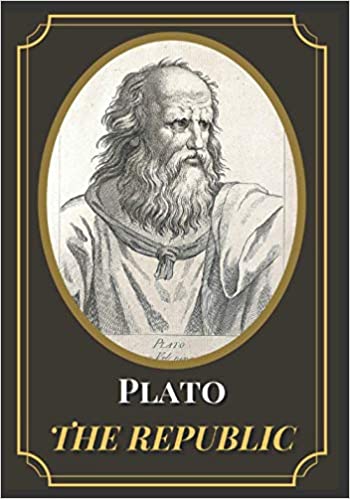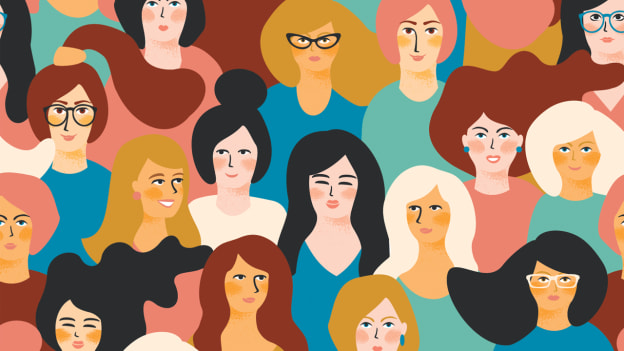
Belief is pink. Belief is green. Belief is whatever we wish to make ourselves believe. But truth: truth is black. It is absolute, entire, and never-changing. Philosophy, a subject made for the ones who love wisdom, is the stream to find the path of truth, yet living in belief. The thirst to wise up, to mature, to know the certain reality, has exhausted many, but only a few have the courage to search for it. The Republic is one such book. Plato, who authored The Republic, simply started on a quest to find what the essence of justice is, on the principle of open, unfiltered conversation- a principle that could be explained by the quote, ‘Reasoning and truth can only be gained through dialogue.’
The Republic is a book with its chapters named books and the chapters in the form of dialogues- Socratic dialogue, as it has come to be known as. Unknown to us, whether what is depicted in the book is fictional or not; the one hard reality of the book we do know, is that the ideas are real, the consequences are real, and that this dialogue is a start.
The Republic opens with Socrates, believed to be the mentor of Plato, and the narrator of most of the ideas in Plato’s books, starting a dialogue with Cephalus, merely about how life treats an old man. The to and fro between them escalates such that Socrates tries to find what justice is. What the philosophers come up with- justice as interest of the stronger or justice as a loyalty- simply falls short to define the actuality of it. Glaucon, another such philosopher interjects defining justice as a social contract; that justice simply arises from fear of the consequences, and how an unjust man lives a better life than a just one- an appeal that weighs heavy on most of us in, this day and age, where unjust means are pursuable, and consequences escapable. This only encourages Socrates to pursue the city-soul analogy, that a well-ordered state is a model of a well-ordered soul.
Ideas like censorship and procreation, manipulating DNA for stronger genes, and euthanasia step in. Arguments relating to how one who is unable to provide for the city back, isn’t worth saving, and more waste than not of resources (euthanasia), and state lottery for partners for procreation, for manipulating DNA, play in. A disclaimer here, that it is valid to believe that all the ideas introduced by the book aren’t right, is required, but anyone in search of the naked truth- one without a blanket of comfort and lies around it, knows so already. Incorrect or not, one realizes it would be wrong to believe that the dialogue is anything but a search for the answer.
Open the newspaper to find the scientists today in search of the same- manipulating DNA, for stronger genes- Social Sciences and governments trying to find the line between censorship for the betterment of people, is ever so interesting, that years later we still debate and research about the same questions, only with similar answers. From concepts like ‘Principle of Specialization’ to ‘Myth of Metals’, many novels and arts have explored these ideas as well- fictional or educational. The Republic has influenced every stream of life, simply in the quest to find justice.
Today the belief that education is the first step towards development is what is stressed in the book with the famous ‘Allegory of the cave’. Allegory of the cave is about some people locked in a dark cave such that they only face the end of it, where sunlight reflects, and each day they see shadows on it of the people roaming outside the mouth of the cave. Unbeknownst to reality, they believe the shadows are real. One day when one manages to escape and sees the world outside, he experiences pain to leave his belief to be enlightened with the truth. When he goes back to the cave to tell others, that the shadows were indeed unreal, they believe he has gone mad and kill him. The quote ‘Birds born in a cage think flying is a sin’ comes to mind. This rings a chord, where the uneducated are many but the ears are few.
When Socrates concludes it with the argument of the five types of governments and how it is real that democracy, the least restrictive government, will lead to tyranny, the most. An evidence witnessed in many examples from Germany under Adolf Hitler to Iraq under Saddam Hussein, in real life.
What the true definition of justice, Socrates concluded with, was that justice is an order of all parts of the soul to commit to their duties; justice is to the soul as health is to the body.
From the search of justice in Book 1 to the conclusion of the search in Book 10, after touching all possible arenas of our lives just to find it there, we can conclude justice affects all, philosophy affects all. The Republic is the most influential book not simply because it was one of the most important texts of political theory but because it is an indentation of how philosophy enters our life and how we enter the realm of philosophy. It is considered Plato’s finest piece of literature as well. From its humor, imagery, and irony, to the connection of politics to power and the largeness of view, it has influenced every reader into reflecting how justice exists.
The Republic is a successful attempt in search of an answer. It is a guide on how to scour the fine line between what one believes to be true and what is true. The Republic influences a surge of ideas in each and every reader- to transform one’s beliefs, closer to the truth or farther away. It influences all fields and thus it is the most influential book written yet. Belief is ever-changing but it only changes when it is influenced. Belief is grey. Belief is blue.
By MONISHA JASRAI, New Delhi
